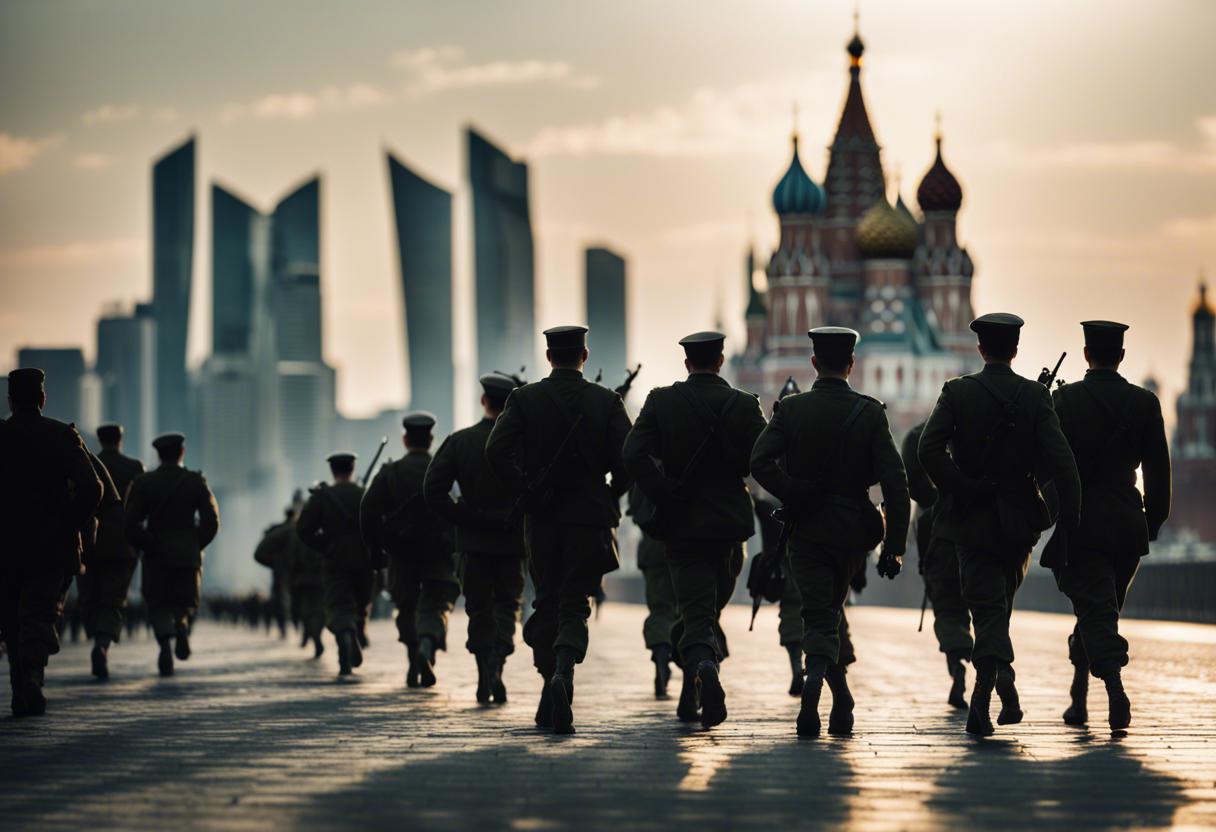Almost a fortnight has passed since Ukrainian military forces burst through weak border protections and charged into the Kursk region of Russia. Yet, the Russian government has failed to gather the substantial force essential to discourage the Ukrainian invasion. Instead, Moscow has haphazardly formed units from various parts of the nation and quieter zones of the Ukrainian front, whilst also employing novice conscripts fulfilling their compulsory military service.
Ivan Chuvilayev, who represents a Russian NGO called Go by the Forest assisting locals to evade conscription, commented that people are terror-stricken. He mentioned that they’re inundated with appeals and are struggling to keep pace. Recently, the group has been swamped with cries for assistance from new recruits and their relatives as news of young troops being dispatched to Kursk continued to spread, whilst Ukraine continued its advancement. Chuvilayev noted that initially it began in some areas, but it’s now evident that recruits are being drafted from across Russia.
The initial response team in Kursk comprised of FSB Border Troops, fighters from Chechnya’s Akhmat and local infantry units taken from Moscow or Leningrad military districts. Dara Massicot, a senior fellow at the Carnegie Endowment for International Peace, pointed out that additional forces, including conscripts, have now been pulled in from Leningrad and Moscow military districts.
NATO’s supreme allied commander for Europe, Christopher Cavoli, described Russia’s military reaction to the Kursk invasion this week as “slow and incoherent,” attributing it partially to a convoluted command framework in the region, with the FSB security service theoretically in control.
Based on military analysts and posts on Russian pro-war social media platforms, it appears Moscow has relocated several battalions from the Ukraine locations, including Kharkiv, Luhansk and Zaporizhzhia, to Kursk. Lithuania’s defence minister indicated that troops have also been transferred from Russia’s Kaliningrad region. However, the forces in Donetsk, which are continuously capturing land from Ukrainian forces greatly outnumbered, have largely remained intact.
Despite a deceleration in Ukraine’s invasion last week, it continues to penetrate deeper into Russian territory by several kilometres each day.
On Thursday, claims arose of Sudzha, a town located near the border in the Kursk region with a populace of 5,000 and home to infrastructure that channels Russian gas to Europe, being fully seized. According to Ukrainian military command, it holds dominion over approximately 1,000km² of Russian land, notwithstanding, experts suggest the actual area might be lesser.
The following day witnessed the obliteration of a crucial bridge spanning over the Seym river in Kursk by Ukraine’s military, writes Roman Alekhin, an advocate of war and adviser to the regional governor of Kursk, on his Telegram channel.
The obliteration of the Glushkovo bridge, including attacks on other bridges in the vicinity, potentially exacerbates the challenge for Russia’s forces to safeguard a segment of the Kursk region westward of Ukraine’s primary intrusion.
However, Vladimir Putin, Russia’s president, seems reluctant to allocate more substantial resources from the eastern front, rendering him with limited choices. “Putin’s aspiration to hinder the Ukrainian progress predominantly with conscript forces raises questions about their capacity to deter Ukrainian forces. I’m sceptical,” stated Yury Fedorov, a Russian military analyst.
The various groups that Russia had marshalled in Kursk lacked combat experience as a unit and had insufficient time to acclimatise, added Fedorov. Despite the reinforcements from the previous week, Russia’s forces within the region still pale in comparison to Ukraine but have the advantage of air support. The Russian air force has amplified its deployment of potent glide bombs in an attempt to stymie Ukraine.
“Vulnerabilities in Kursk pose complex remedies for Russia,” Pavel Luzin, a non-resident senior fellow at the Center for European Policy Analysis, expressed. “In the latter half of 2023, they were already reassigning personnel from alternative military branches to Ukraine. Personnel reassignments encompassed those from the navy and the Plesetsk Cosmodrome, among others.”
Russian conscripts, estimated to be around 300,000 by Luzin, are practically the only vital reserve obtainable to the Kremlin. Putin has consistently refuted the notion of deploying conscripts to war zones. As per Russian legislation, only conscripts with a minimum service period of four months possessing specialised skills can be assigned to combat areas, although the law is susceptible to contravention.
Chuvilayev from Go by the Forest claims that conscripts are being compelled to commit to agreements and their records are being manipulated to create an impression of prolonged service. He assures that approximately 250 individuals were repositioned from a military division in the Leningrad region to Kursk. Based on enquiries from at least 10 units, it’s reasonable to estimate that around 1,000 people have been relocated.
Andrei Gurulev from State Duma also validated the involvement of conscripts in conflict in Kursk. He stated that these conscripts successfully thwarted an assault by a whole brigade without suffering any casualties. Gurulev expressed his empathy for these young men, recounting that they used to fight with them in the past, and explaining that there were no contract soldiers in the Red Army or in Afghanistan.
Petitions have been raised on Change.org by the mothers of conscripts pleading with Putin to extract their children from the war zone. Complaints from mothers such as Oksana and Irina state that their children, mere conscripts, are being pitted against expertly trained, heavily armed brigades, causing tremendous distress.
In the view of Pavel Baev, a research professor at the Peace Research Institute Oslo, the clear resolution is for Russia to pull its troops away from its bridgeheads in Ukraine’s Kharkiv region, that were stealthily established in May. However, this would cause further humiliation for Russian regional commander, Col-Gen Alexander Lapin, who has already faced reproaches for weak defences in Kursk. According to Baev, Lapin is concerned that Putin might not be in favour of the idea of ending his vision of a ‘sanitary zone’, the objective of the Kharkiv offensive. Copyright The Financial Times Limited 2024.

